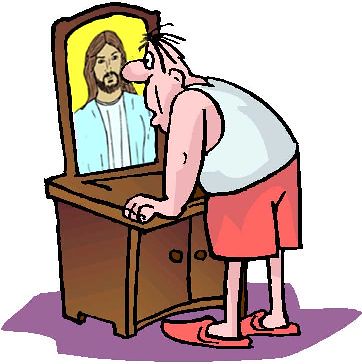Also/p.s., I want to get back into writing, for fun and for personal expression of my faith. So look for more regular blog posts from me on GraceEmerges .
by Brad Duncan
As I reflect on what Jesus did in his ministry on Earth and with his death on the cross, I can't help but see human nature through God's eyes. At the same time I see God's nature through Jesus.
Take a look at this table: it lists some of the things that Jesus did in Luke chapters 4-7. It challenges us to consider what these choices and actions shows us about God's nature. As Jesus reflected God's nature, why did he do these things. what do they show us about God's nature? Then it challenges us to consider what we should do to follow Jesus as we continue what he started through the help of the Holy Spirit.
- God, who sent his Son to be human, so he could in turn show us what the Father is like.
- God whose plan from the beginning of time was to establish something good on Earth, where his creation would participate in a kingdom of his design.
- God made something good when he designed us.
- Jesus came to us and showed us good.
- The Holy Spirit continues to be the force of good in the world, working among us and bringing about God's good intentions.
The Good News
of the Incarnation and God’s Kingdom
| ||
God the Father:
What does this show us about God’s nature and God’s view of human nature?
|
Jesus the Incarnation of God:
What Did Jesus Do?
|
The Holy Spirit:
What should we do with the help of the Holy Spirit as part of God’s kingdom?
|
Brought good news to the poor,
released the captives,
healed the blind,
liberated the oppressed,
proclaimed God’s favor
(Luke 4:18,19, 6:20,21)
| ||
Forgave sins, healed the sick, was compassionate and taught us compassion
(Luke 5:17-26,6:36)
| ||
Accepted the rejected, called them to follow him, led people to change their hearts and lives
(Luke 5:27-31)
| ||
Valued doing good over following traditions and rules, resisted the religious establishment
(Luke 6:6-11,39-48)
| ||
Loved his enemies, always resisted peacefully, taught that God blesses both the good and evil with kindness, taught us to do the same
(Luke 6:27-35)
| ||
Withheld judgment of sinners, outcasts and outsiders, taught us not to judge others, taught us to be generous and gracious
(Luke 6:37-38, 7:36-50)
|
So why do I see human nature in the Incarnation? Well we were created in God's image. But we can't see God to know what he's like. Instead we can see Jesus, who shows us God. He's like a mirror of what human nature can be on its best day: forgiving, compassionate, accepting, able to resist favoritism and prejudices, kind to enemies, generous, gracious, and firmly standing for justice!


I don't think Jesus withheld judgement on all sinners. He was very consistent in his critique of the Pharisees. I think Jesus withheld judgment on people who knew they were sinners*, but Jesus was fairly quick to judge self-righteous people who thought they were going to save themselves. People who think they're Pretty Good (tm) are the people who are in the most danger.
ReplyDelete*I'm thinking of instances like the woman caught in adultery, or the woman at the well, in contrast with the rich young ruler, for example.
Searcher, yes Jesus stood up for what was right, and did not promote an "anything goes" morality. In fact he led us to a higher morality. In that way, you could say he judges the judgers, is intolerant toward the intolerant, etc. We can get into a spin thinking about that one, but the message is not confusing: we should not be going around judging people, and we should resist those that DO go around judging people, because it is wrong.
DeleteRegarding the woman caught in adultery and the woman at the well, I often hear these examples used to say "see, really Jesus does judge sexual sins, and so should we". In fact in these examples Jesus is more concerned about the person and her freedom, than whether she is more or less moral than anyone else. Everyone Jesus spoke to was caught up in moral and ethical muck. He knew that, so he said "let he who is without sin cast the first stone". Jesus set us straight, but he did not judge us as we deserved.